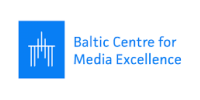MEDIATHON | Baltic Youth Excelled in Critical Media Content Creation
On February 1 in Riga, young participants from Estonia, Latvia, and Lithuania collaborated in mixed teams to develop well-researched and impactful media content strategies on key topics, including the environment, health, culture and entertainment, social issues, and politics. Prior to the event, on January 18, participants attended media training sessions at DELFI newsrooms in Tallinn, Riga, and Vilnius.
Designed to enhance media literacy and critical thinking among young people aged 18 to 23, the program aimed to empower participants to become responsible and proactive social media content creators.
Selected based on the strength of their applications, participants first attended national media training sessions, where local media experts addressed essential questions: What is media? How are media structured, and what roles do they serve? What do journalists do, and what sources do they rely on? How does social media differ from traditional media? How do social media algorithms influence content? What is fact-checking in journalism, and why is it crucial? How are fact-checking articles created? The training also covered data visualization and the fundamentals of mobile journalism, along with a behind-the-scenes look at DELFI newsroom operations.
The top 10 participants from each Baltic country then advanced to the Mediathon event in Riga, where they collaborated in mixed teams to craft and present their media strategies. A jury of media experts, who also served as mentors throughout the event, evaluated projects based on the relevance of chosen topics, the credibility of sources, fact-checking rigor, audience engagement, visual communication, content distribution strategies, and innovative approaches. The Baltic Youth Mediathon concluded with a victory for a team that exposed cryptocurrency schemes in the economics category.
“This event showcased the incredible creativity, critical thinking and collaboration of young people from across the Baltics. By working in diverse teams and combining different perspectives, they developed innovative solutions to pressing modern challenges—ranging from combating disinformation to enhancing financial literacy and mental well-being. Among the standout ideas were board games designed to teach media literacy, social media campaigns addressing financial fraud, and a forward-thinking app that enables young voters to easily compare political platforms, fostering greater civic engagement. The energy, determination, and problem-solving skills demonstrated today highlight the immense potential of this generation in shaping a more informed and responsible media environment. A heartfelt thank you to all participants, mentors, and organizers for an inspiring and thought-provoking experience!” admits the head of the jury Filips Lastovskis.
The winning team, composed of Janete Olev (Estonia), Pauls Zalitis (Latvia), Karl-Erik Õun (Estonia), Filips Rasmussens (Latvia), and Viltė Apolianskaitė (Lithuania), demonstrated exceptional analytical and creative skills in their project. They investigated cryptocurrency schemes, exploring common tactics used in fraudulent investments and the psychological factors that make young people susceptible to them.
The team developed compelling visual materials designed to educate and engage young audiences as part of their initiative. Their work aimed to raise awareness about the risks of “get-rich-quick” crypto scams, providing clear insights into safe investment practices. Through social media campaigns and interactive presentations, they effectively debunked prevalent myths and equipped their peers with critical thinking tools to navigate the digital financial landscape more safely.
This initiative was the final activity of WP4, a collaborative effort between the Baltic Centre for Media Excellence, Tartu University, and DELFI in Latvia, Lithuania, and Estonia.
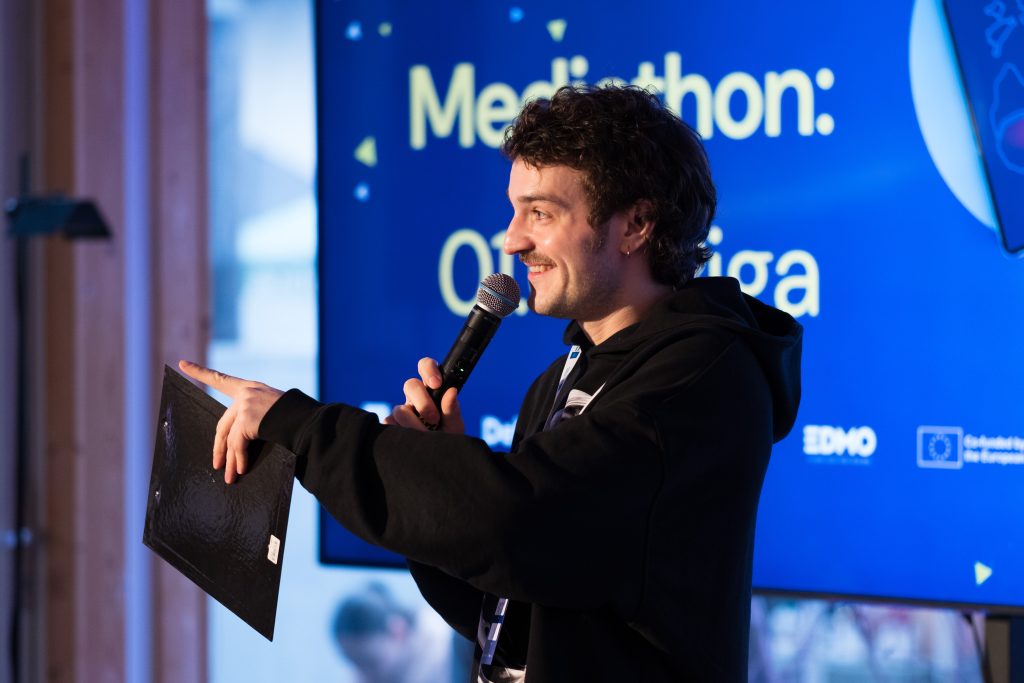
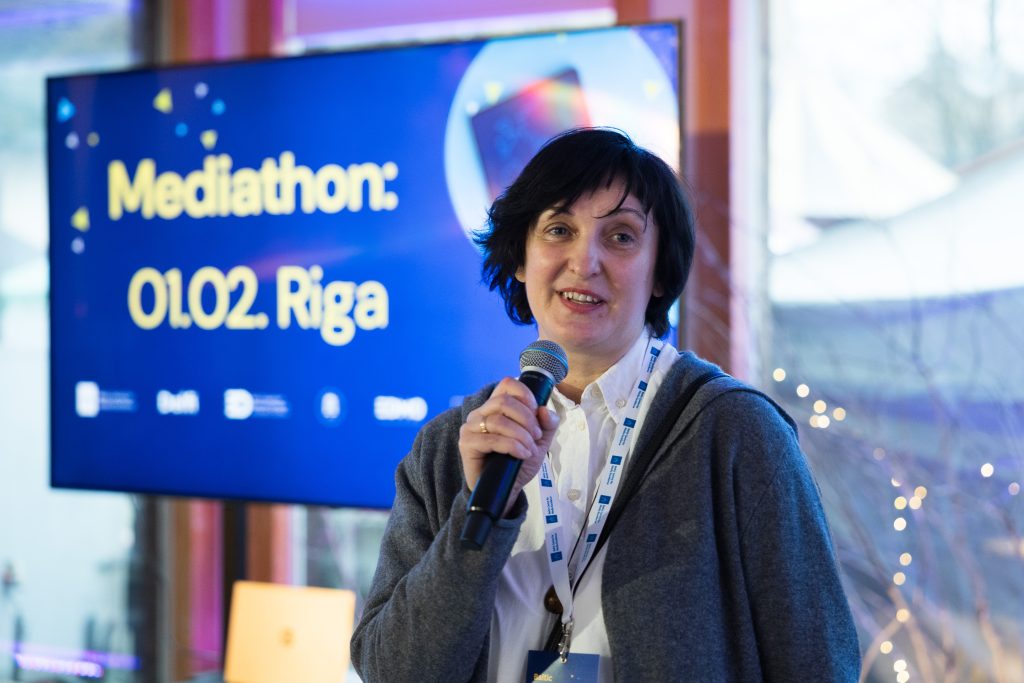
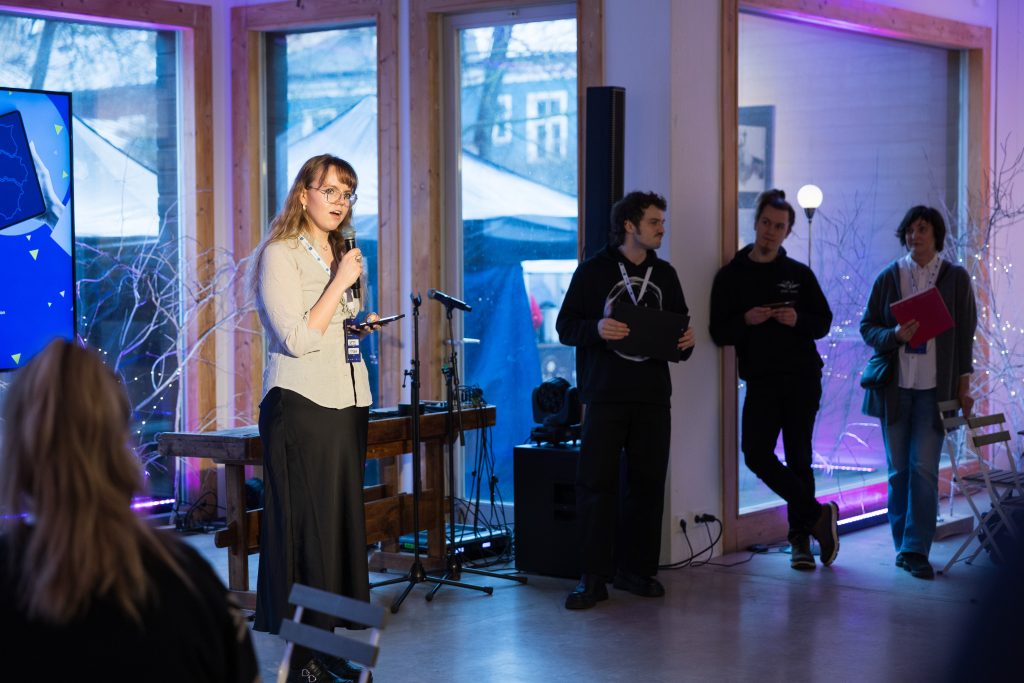
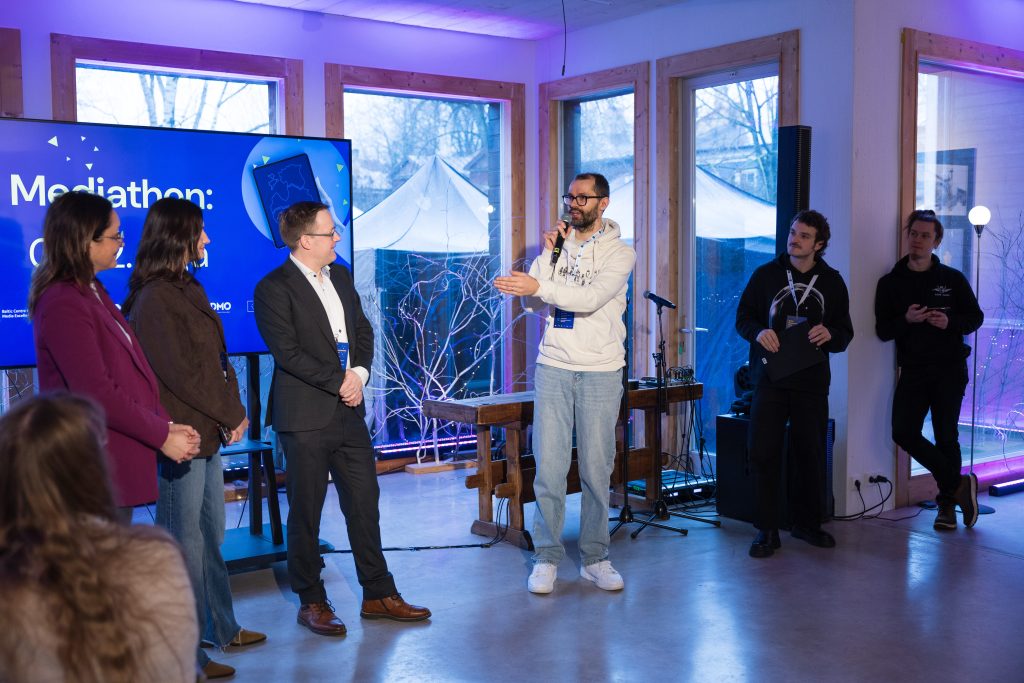
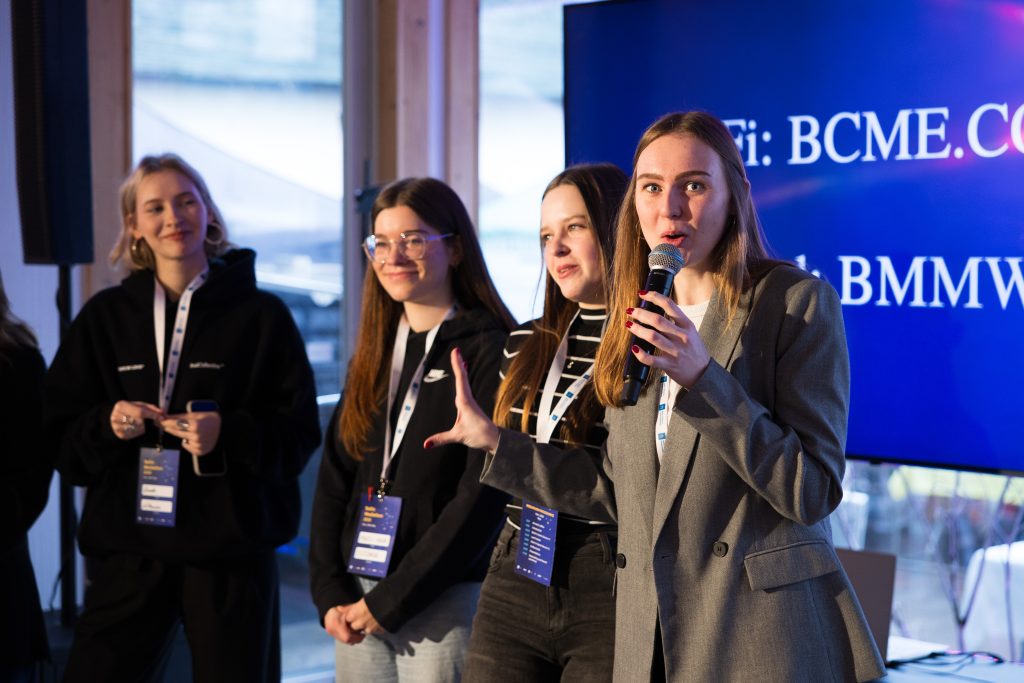
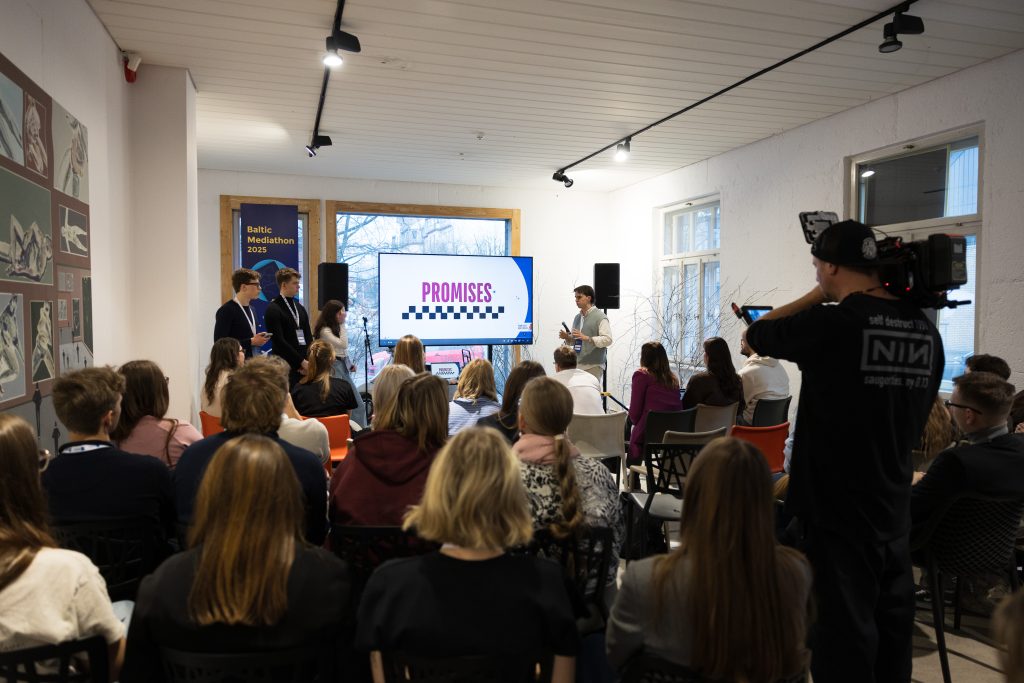
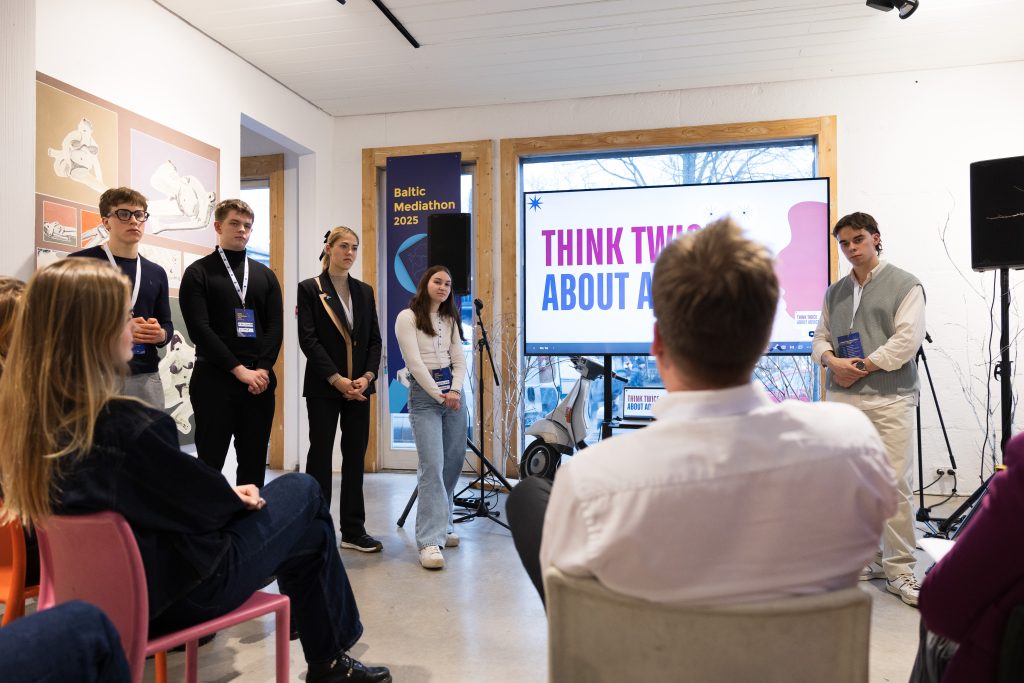
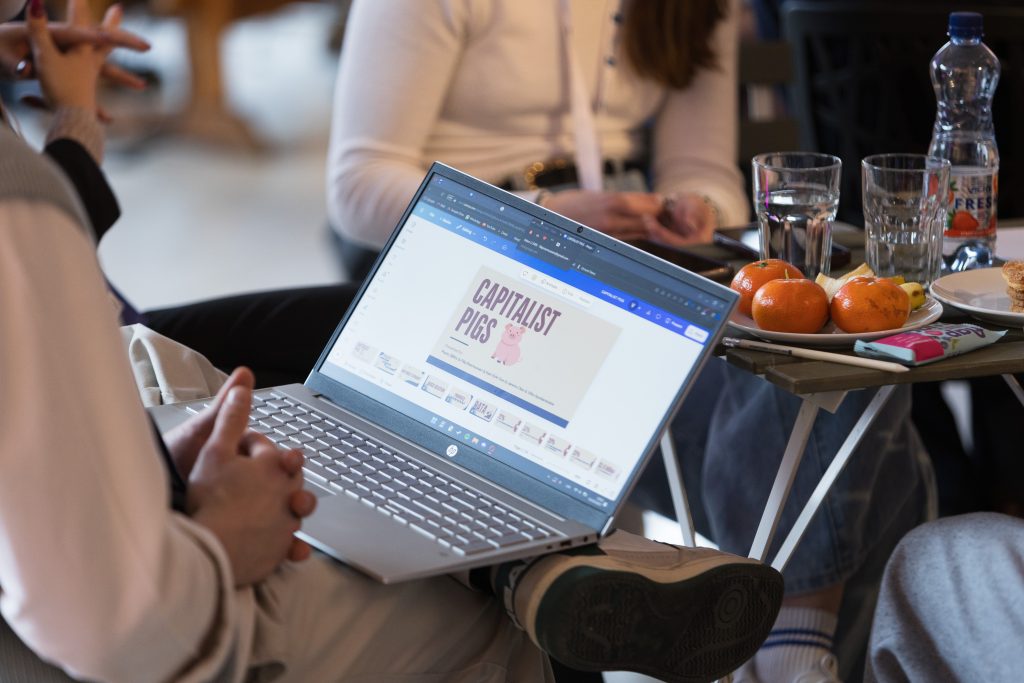
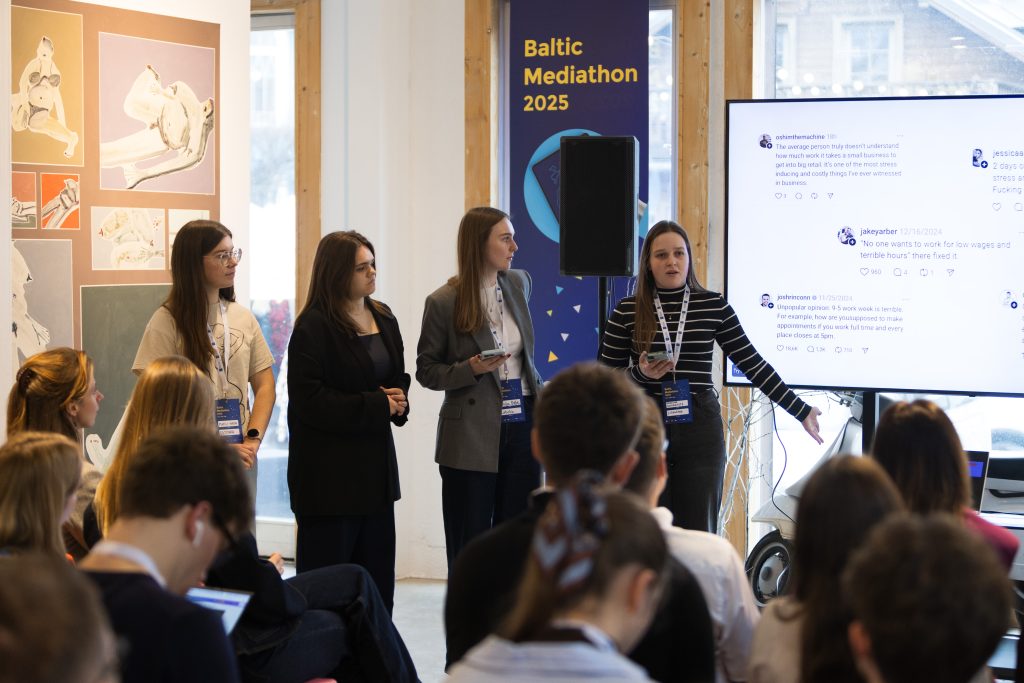
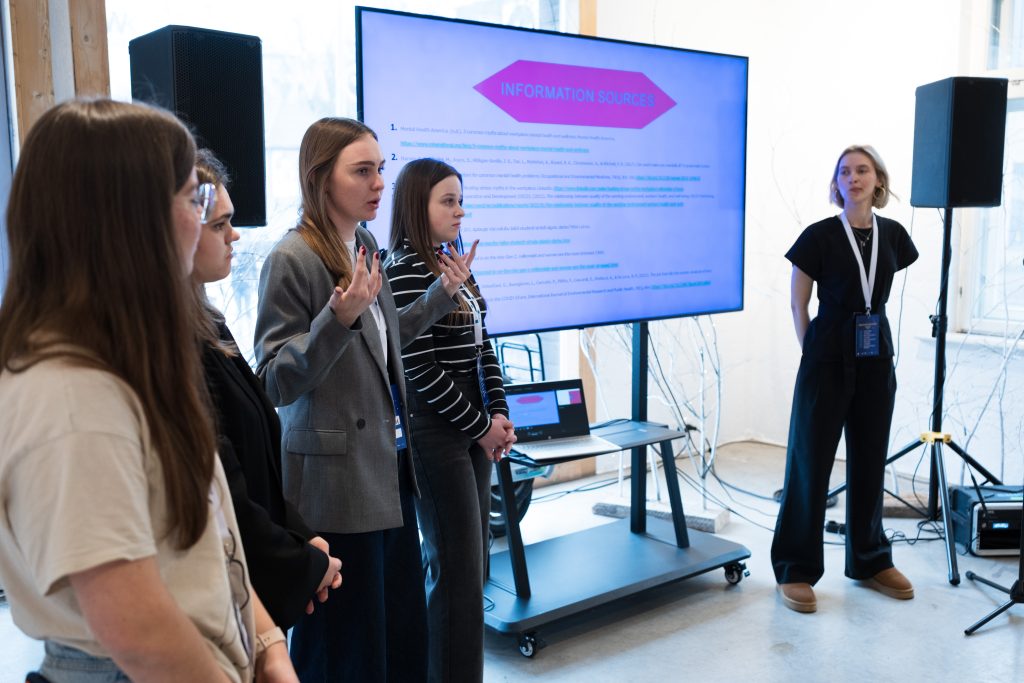
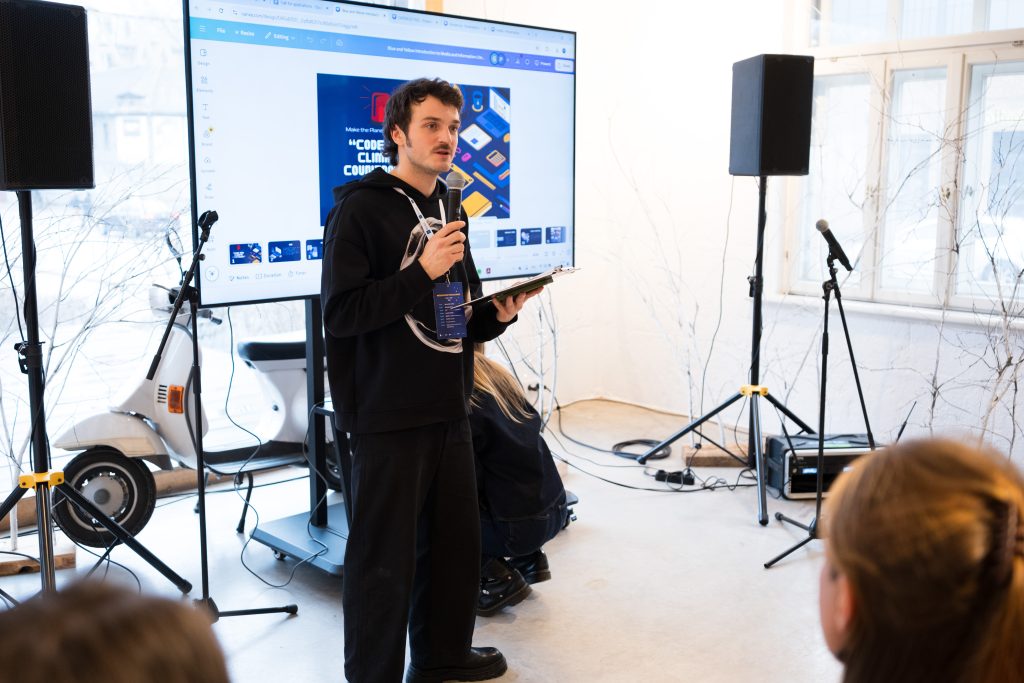
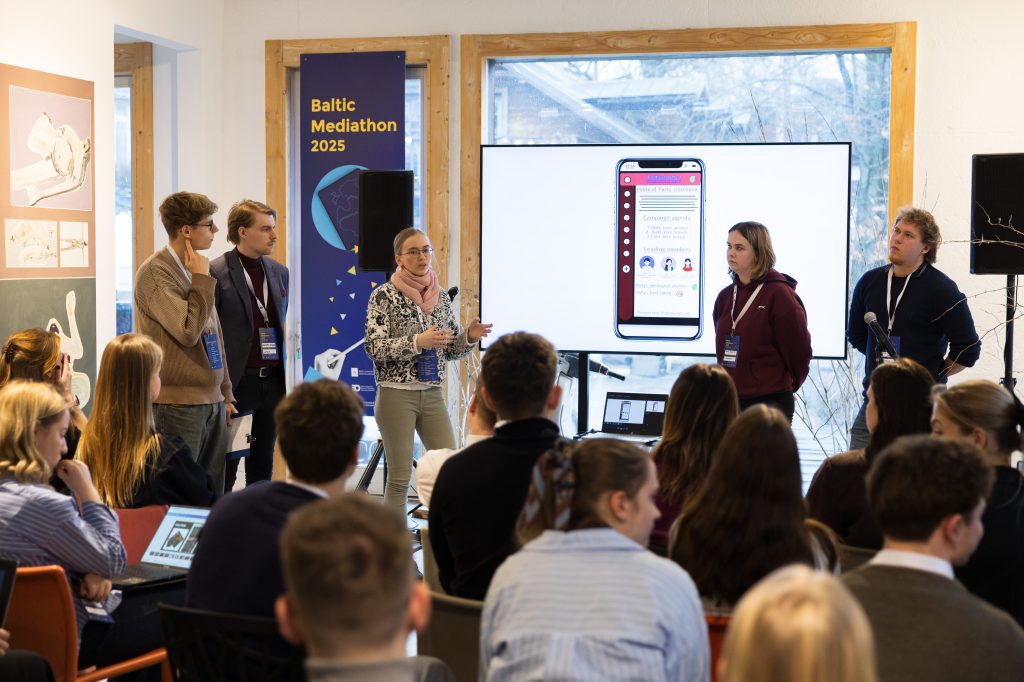
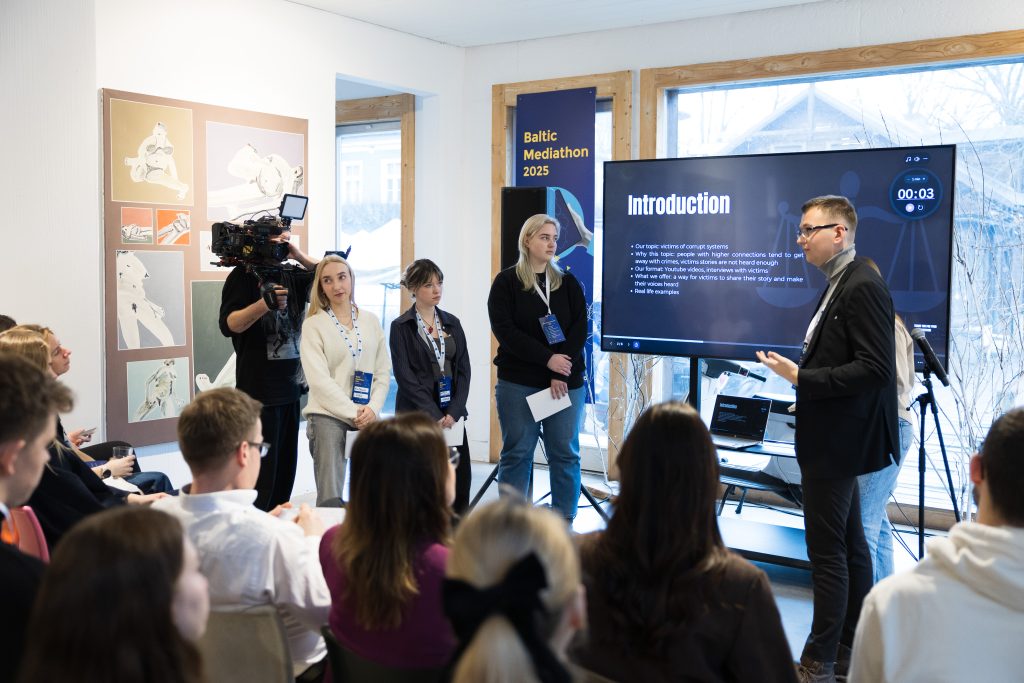
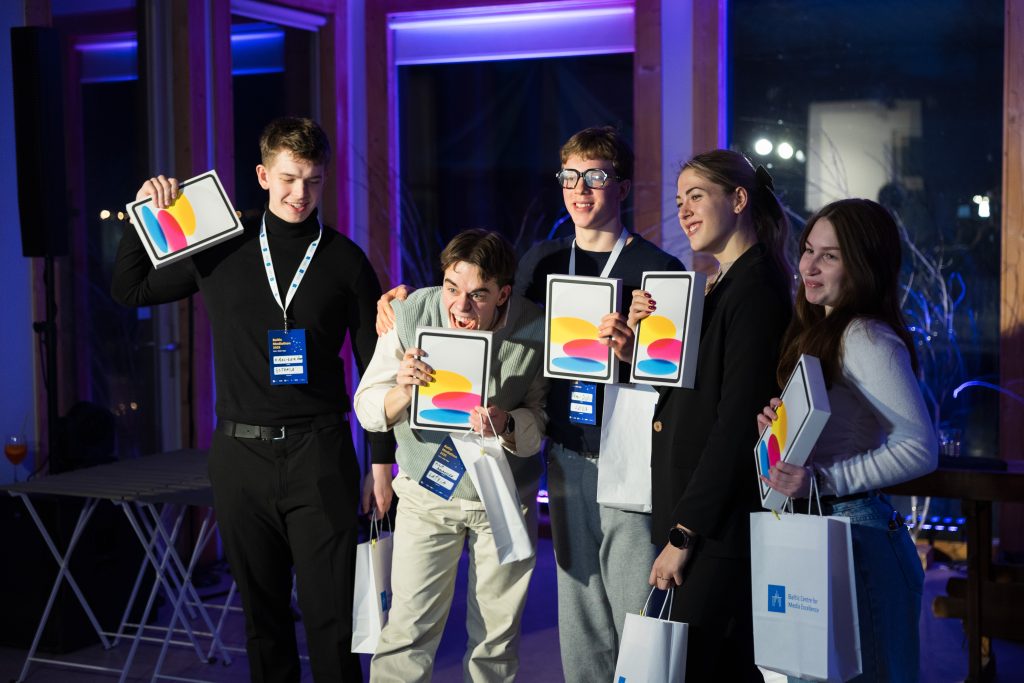
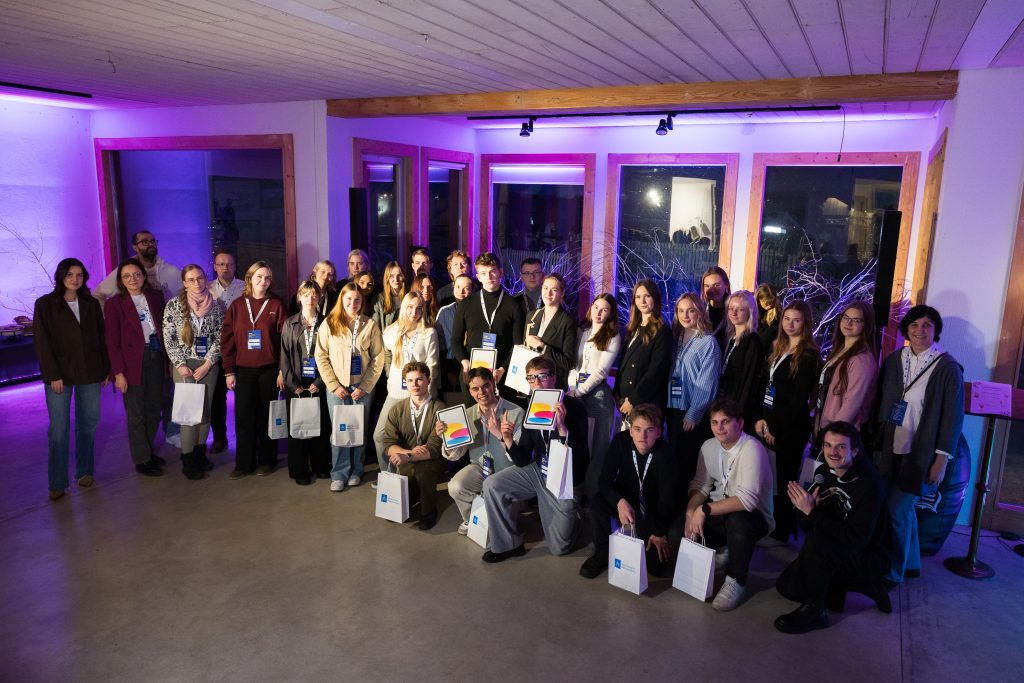
Photos: Alfrēds Ulmanis





